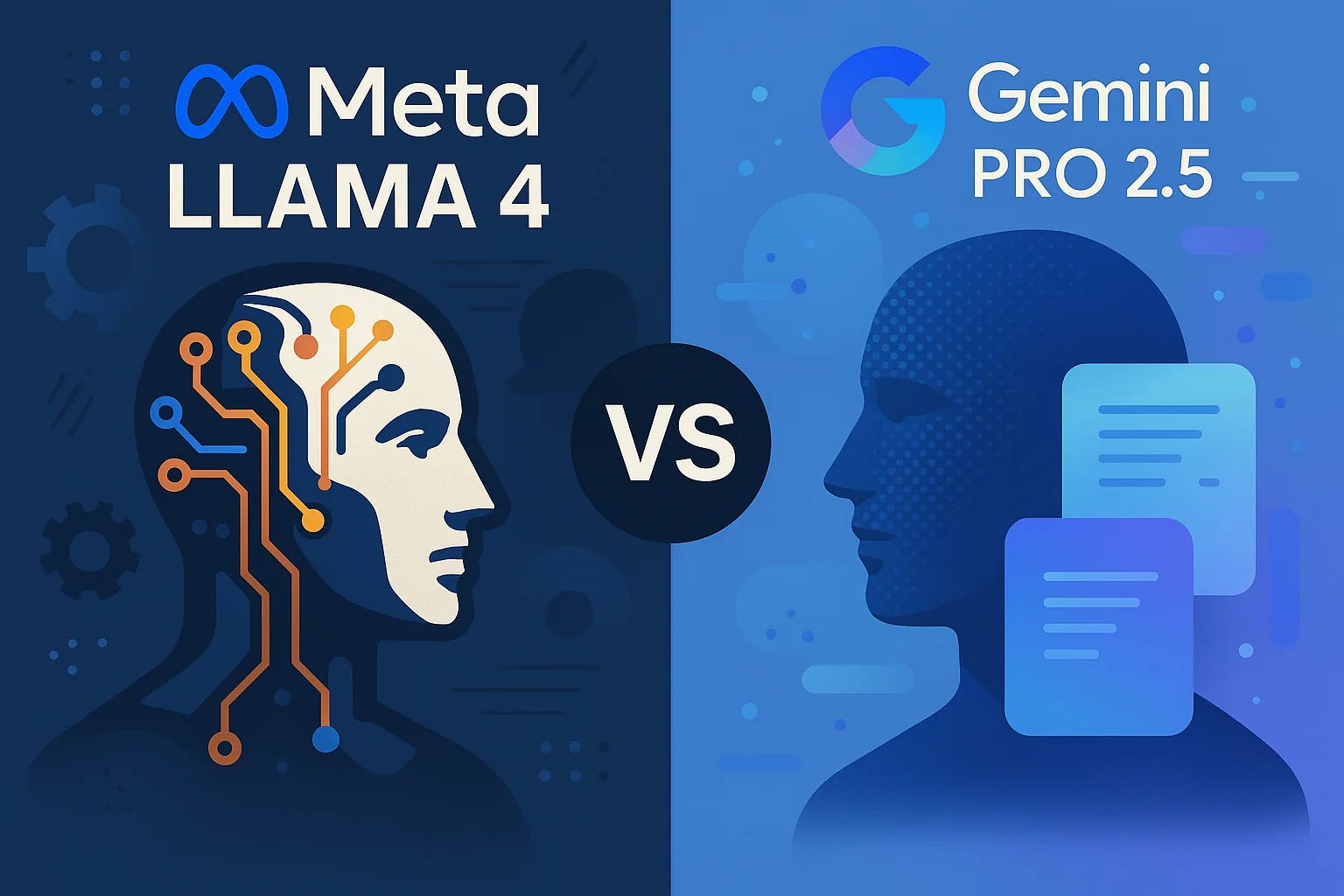Llama 4 Landed with a Thud—Here's Why That Matters
Meta recently unveiled their new Llama 4 models, generating significant buzz within the AI community. The release, while promising, encountered a series of missteps that are worth examining closely.
Market Intelligence
Upon the launch of the Llama 4 models, it became evident that there were noteworthy issues that needed to be addressed. As an observer in the AI space, I monitored the developments surrounding Meta's latest release. The initial excitement eventually gave way to concerns as certain aspects of the launch came under scrutiny. 
It is essential to delve deeper into the specifics of this release, considering insights gathered from personal observations, discussions with industry peers, and information from public sources. However, a comprehensive analysis will have to wait until we have more performance data and insights on Alibaba's upcoming Qwen 3 models.
The Launch
Meta's release on April 5, 2025, introduced two new models, with a third model, "Behemoth," still undergoing training. Referred to collectively as "the herd," these models were positioned as open and remixable, boasting the longest context among available models.
Shortly after the release, discrepancies were noted between the Maverick checkpoint submitted to LM Arena and the publicly available version. This discrepancy raised concerns about the integrity of the benchmarks, although Meta attributed it to early-stage deployment issues. 
Despite the initial excitement, early adopters encountered challenges with Scout's multi-million-token context, experiencing crashes and inconsistencies between GPU and CPU environments. Meta acknowledged these issues as "early-stage deployment bugs," leading to the perception of instability surrounding the models.
Trust and Transparency
The controversy surrounding the launch prompted Meta to issue denials regarding any manipulation of benchmarks. However, their actions, including submitting an experimental version to a leaderboard, eroded trust within the AI community. :max_bytes(150000):strip_icc()/GettyImages-2173579370-47a0c1117cf44b5ea92c5faafd422275.jpg)
Establishing trust in the AI ecosystem is crucial, especially when it comes to open-source models. The reliance on benchmarks for evaluation and comparison underscores the importance of transparency and accuracy in model development.
Lessons Learned
Despite the challenges faced during the launch, the Scout and Maverick models offered valuable contributions, with potential for further development. Meta's emphasis on certain features, such as lower refusal rates for controversial queries, highlighted areas of innovation but also raised alignment debates.
Meta's overarching goal of building the best general-purpose open-source model is commendable, yet the execution fell short in certain aspects. The rushed release underscored the need for clarity in product direction and more refined release practices.
Conclusion
While the Llama 4 models possess significant potential, the rushed rollout revealed organizational challenges that must be addressed before future releases, such as the upcoming "Behemoth" model. Moving forward, Meta must prioritize vision and careful execution to ensure successful product launches.
Despite the setbacks, the open-source AI community continues to evolve, with each new release offering learning opportunities. The importance of how a model is released is just as critical as the model itself, emphasizing the significance of strategic planning and execution. 




















